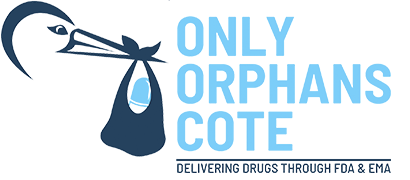The Benefits of Orphan Drug Designation and Market Exclusivity
Orphan Drug Designation (ODD) is one of the earliest and most essential regulatory steps for sponsors developing therapies for rare diseases. For eligible products, this designation opens the door to significant financial, regulatory, and strategic advantages that can shape the success of an entire development program.
What is Orphan Drug Designation?
The Orphan Drug Act of 1983 was created to stimulate the development of treatments for rare diseases: conditions affecting fewer than 200,000 people in the United States. Since its enactment, approvals for rare disease drugs have surged from fewer than 10 before 1983 to over 1,100 today, as thousands of sponsors have pursued this pathway to bring new hope to patients.
Receiving orphan drug designation (ODD) from the FDA confirms that your therapy addresses a rare disease and meets eligibility criteria for specialized regulatory incentives. An orphan drug designation does not mean the drug is approved yet, but it is a major strategic milestone. It opens access to valuable FDA incentives that can significantly ease the cost, risk, and timeline of later development and approval.
The Four Legal Benefits of FDA Orphan Drug Designation
The four core benefits written into The Orphan Drug Act of 1983 are:
- Orphan Drug Exclusivity – 7 years of protection against approval of the same drug for the same indication (in the U.S.)
- Tax Benefits – Up to 25% tax credit on qualified U.S. clinical trial expenses.
- Exemption from PDUFA Fees – Waiver of the FDA’s Prescription Drug User Fee Act (PDUFA) fee, which is over $4.3 million per application.
- Exemption from PREA – The Pediatric Research Equity Act normally requires pediatric studies for new drugs, but orphan drugs are exempt from this obligation.
Those are the tangible, statutory benefits—but the strategic advantages extend even further. As Dr. Tim Cote, former Director of the FDA’s Office of Orphan Products and CEO of Only Orphans Cote, explains:
“In practice, orphan designation makes your program more fundable and your trials easier to enroll,” says Dr. Cote. “That’s the real-world value every sponsor feels.”
When to Apply for Orphan Designation
Sponsors often ask:
When is the right time to apply?
Dr. Cote’s answer is simple: “The first moment you are eligible. As soon as you have the medical rationale and preliminary data in hand, apply.”
Once you obtain efficacy data from an in-vivo animal model relevant to the human rare disease, you become eligible to apply for ODD. Alternatively, case reports from 2–3 patients may also support eligibility if you are already in the clinical stage.
What is Orphan Drug Market Exclusivity?
Orphan drug market exclusivity is the period of time after approval during which the FDA will not approve another sponsor’s application for the
same drug for the
same rare disease or condition.
As Dr. Tim Cote explains, orphan drug exclusivity is based on a “dyad”—the combination of a specific drug and a specific disease. The designation itself doesn’t grant exclusivity; it simply defines that dyad.
Multiple Sponsors, Same Designation, One Exclusivity Winner
Multiple companies can hold the same orphan designation for the same drug–disease pair, but only the first sponsor to achieve marketing approval wins exclusivity. That sponsor receives seven years of protection in the U.S. (and ten in the EU), during which competitors cannot market the same drug for that indication unless they prove it is
clinically superior.
“It’s a horse race,” says Dr. Cote. “Many can line up with the same designation, but the first to cross the finish line—marketing authorization—gets the exclusivity. Winner takes all.”
Key Takeaways
- Orphan drug designation benefits include exclusivity, tax credits, fee exemptions, and regulatory flexibility.
- Orphan exclusivity protects the approved therapy for seven years in the U.S.—awarded to the first sponsor to reach marketing authorization.
- The best time to apply is as soon as eligibility criteria are met.
- Beyond statutory benefits, designation increases visibility, funding potential, and partnership opportunities for rare disease programs.
How Only Orphans Cote Can Help
Founded and led by Dr. Tim Cote, former FDA Director of the Office of Orphan Products,
Only Orphans Cote specializes in helping sponsors navigate the orphan designation process from eligibility analysis through
FDA or
EMA submission.
We guide sponsors through:
Contact us to discuss your orphan drug program and learn how our experts can help you secure designation faster and move confidently toward market authorization.
Orphan Drug Designation Frequently Asked Questions
What are the main benefits of orphan drug designation?
The key benefits include seven years of market exclusivity in the U.S. (ten in the EU), exemption from FDA user fees, up to 25% in U.S. clinical tax credits, and exemption from the Pediatric Research Equity Act. These incentives lower development costs and increase funding opportunities for rare disease therapies.
What is orphan drug market exclusivity?
Orphan drug exclusivity protects an approved drug for a specific rare disease for a set period—seven years in the U.S. and ten years in the EU. During that time, the FDA or EMA cannot approve another company’s application for the same drug–disease combination unless it demonstrates clinical superiority.
Can more than one company receive orphan designation for the same disease?
Yes. Multiple sponsors can receive orphan designation for the same drug and rare condition. However, only the first company to obtain marketing authorization earns orphan exclusivity. It’s a winner-takes-all model once approval is granted.
When should a sponsor apply for orphan drug designation?
Sponsors should apply as early as they have the medical rationale and preliminary data to support eligibility. Early designation allows access to tax credits, fee waivers, and FDA or EMA guidance sooner—strengthening clinical and regulatory strategy from the start.
Does orphan designation guarantee FDA approval?
No. Orphan designation confirms eligibility for incentives and regulatory support, but approval depends on demonstrating safety and efficacy through clinical trials and standard review processes.
Accelerate Your Orphan Drug Strategy
Only Orphans Cote helps sponsors secure orphan drug designation faster. Contact us today to schedule a consultation with Dr. Tim Cote and our team.



